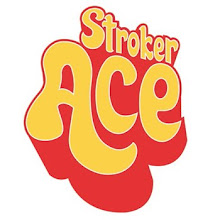Driving in the desert on the outskirts of Doha yesterday, these two very friendly Qatari kids stop me and ask if they can help me at all. I said, "Nah, I'm just driving around." They asked if I wanted to see some birds. This sounded good. "Sure!" I said. So, I got into their little 4x4 and off we went. They took me to this little 'oasis' type place just up a dirt trail. They did not lie. The place was teeming with birds. I don't know what kind of birds they were exactly, but there were a lot of them. Ducks I recognized. They were the first I had seen in Qatar. Overhead, giant falcons cruised the skies looking down for food. A giant crane like bird lifted off from the tall reeds that ringed the water. Dragonflies darted around. The water was perfectly still. It was a green, watery paradise surrounded by miles of sand..
The one kid said something interesting to me. I said we had no deserts in Canada. He said "To us, if there is no desert, there is no life." To many, the desert is the opposite: void of life, a harsh place, brutal place. I remember being taught the difference between the spelling of 'desert' and 'dessert' in this way: 'dessert' has two s's because you want more, 'desert' has one s, because you want less. Deserts are graveyards, hot and dry, inhospitable. In movies and cartoons, the desert swallows up poor, delirious people who end up lost with no water, dragging their weakening tattered bodies as they hallucinate and see mirages.
Turns out that the desert isn't a wasteland. It can be a harsh place, but it is still filled with life. Where ever a bit of water can be found, a spot of shade can be seen, a small hole can be dug, and other food can be caught, there is life in the desert. Plants and animals have adapted, figuring out ways to survive and thrive, just as this kid knew how to use the desert for his benefit. He told me about hunting hares and birds. He would point out the birds that were particularly delicious as they flew off. As it turns out, he owns and trains falcons in the north of the peninsula. Falcons have been used for generations to hunt. He knows where to find animals, food, water. The desert sustains him and his family. It has kept his lineage alive for decades...even centuries.
This was an important meeting for me, personally. One can easily look at Doha and see a very shallow place. Big glassy buildings are going up everywhere. SUV's rule the roads. Money is in obvious abundance. It seems as though there is no traditional culture whatsoever. But, as it turns out, that isn't the case. The land is still important. Traditions are still very much alive. The desert still means life to many Qataris. I saw a different side to this country, and this culture...this complex culture, where things are never what they seem to be, and just when I think I have things figured out, I discover that I don't.
Subscribe to:
Post Comments (Atom)



Fascinating, Chris! Did you get any photos? I love following your Doha experience.
ReplyDeleteAlso, if you've not already seen it, you should see the Planet Earth 'Desert' episode.
Ya, actually, I did get some pictures. I have to get them off of my camera. I'll post them when I get a chance...:) Glad you like to hear about Doha. If you are ever in the neighbourhood, be sure to stop in!!!!
ReplyDeleteYou know, I keep hearing so many good things about Planet Earth. I'll have to track it down!